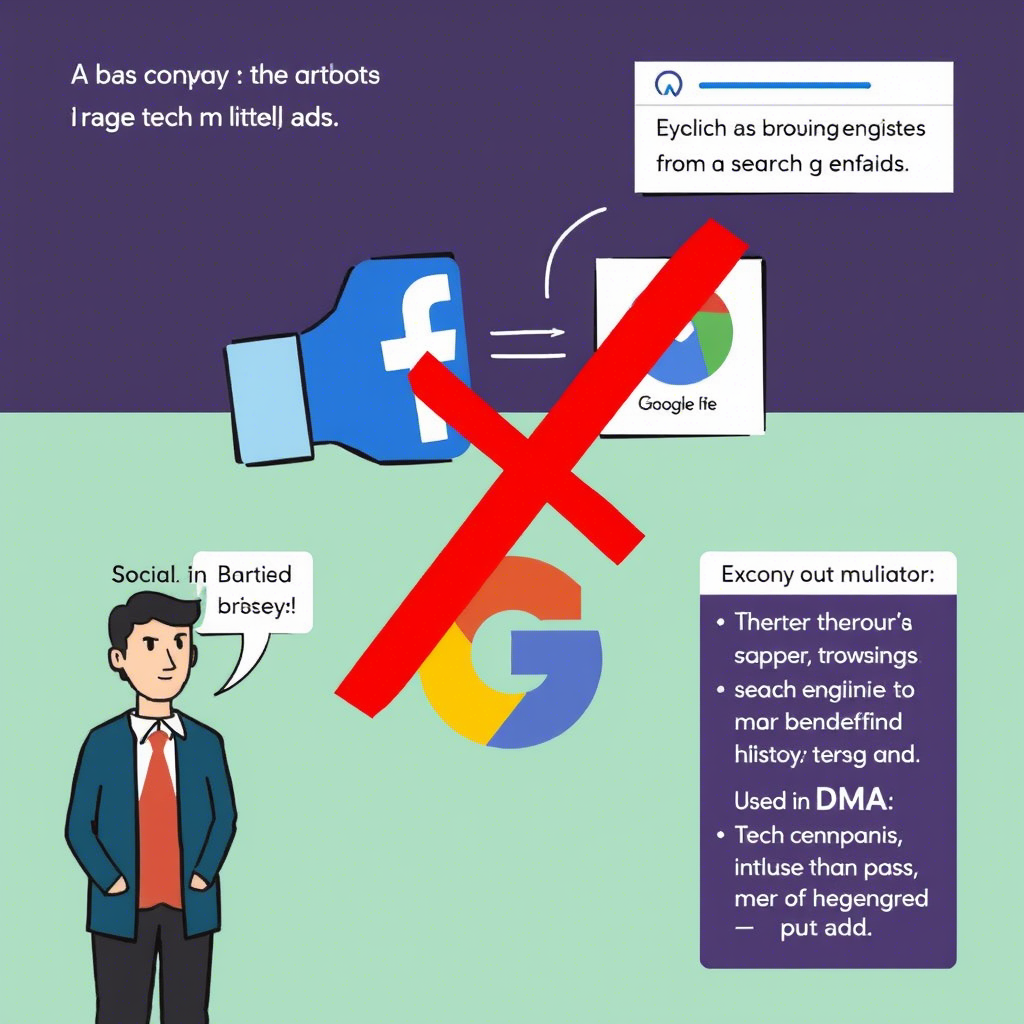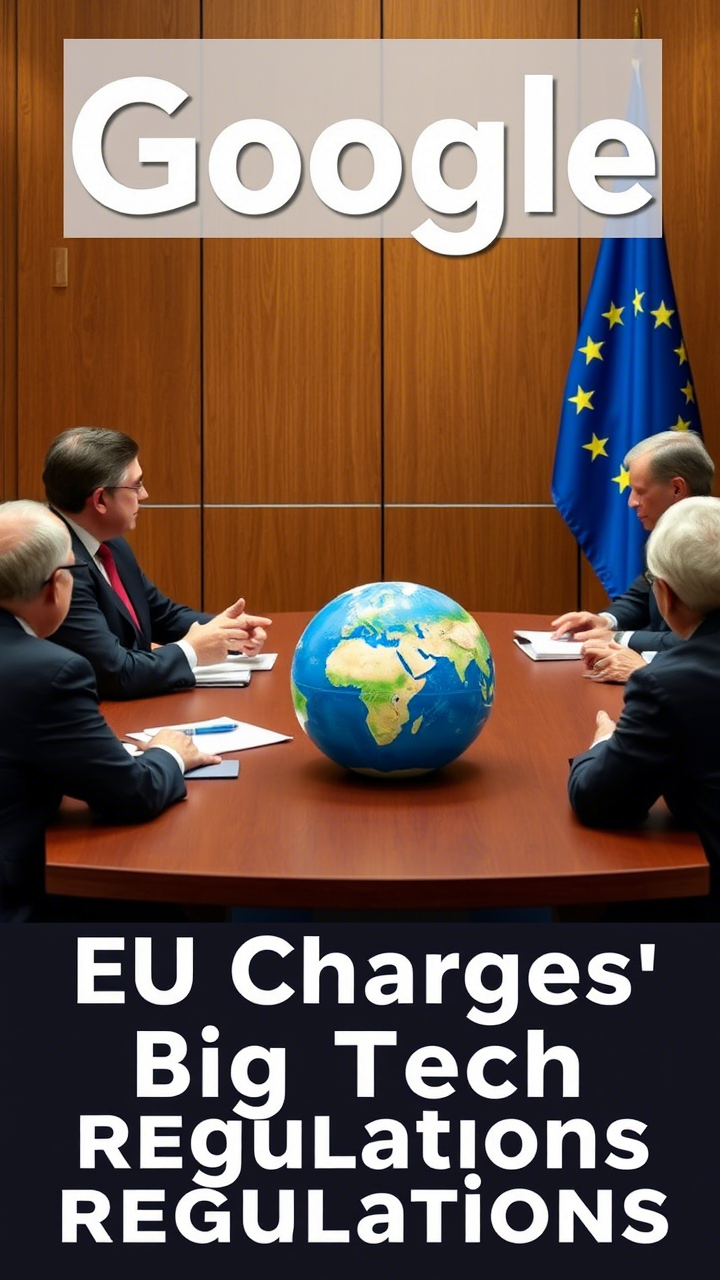In a landmark development that could reshape the global tech landscape, sources close to the European Union (EU) have revealed that Google is set to face formal charges for allegedly breaching the bloc’s stringent digital regulations. This move comes as part of the EU’s broader effort to rein in the dominance of Big Tech companies and ensure fair competition in the digital marketplace. The charges are expected to focus on violations of the Digital Markets Act (DMA), a sweeping legislative framework designed to curb anti-competitive practices by large online platforms.
Background: The EU’s Battle Against Big Tech
The EU has long been at the forefront of regulating the activities of major technology companies, including Google, Amazon, Apple, Facebook (now Meta), and Microsoft. Over the years, these firms have faced numerous investigations, fines, and lawsuits over allegations of monopolistic behavior, data privacy violations, and unfair business practices. In 2022, the EU adopted two landmark pieces of legislation—the Digital Services Act (DSA) and the Digital Markets Act (DMA)—to address these concerns more comprehensively.
The DMA, in particular, targets so-called “gatekeepers,” or companies with significant market power in digital services such as search engines, social media platforms, and app stores. These gatekeepers are required to adhere to a strict set of dos and don’ts aimed at promoting fairness, transparency, and innovation. Failure to comply can result in hefty penalties, including fines of up to 10% of global turnover and, in extreme cases, structural remedies like breaking up parts of the company.
Google, which dominates several key areas of the digital economy—search, advertising, cloud computing, and mobile operating systems—has been under intense scrutiny from EU regulators. Its previous run-ins with Brussels include three antitrust rulings between 2017 and 2019, resulting in cumulative fines exceeding €8 billion ($8.5 billion). Despite these penalties, critics argue that Google’s behavior has not fundamentally changed, prompting renewed calls for tougher action.
What Are the Allegations?

According to multiple sources familiar with the matter, the EU Commission is preparing to accuse Google of violating several core provisions of the DMA. While the full details of the charges remain confidential, insiders suggest they will likely center around the following issues:
1. Preferential Treatment of Own Services
One of the central tenets of the DMA is that gatekeepers cannot favor their own products or services over those of competitors. For example, if a platform operates both a marketplace and a search engine, it must treat all sellers equally, regardless of whether they are internal or external entities. Sources indicate that the EU believes Google has continued to prioritize its own offerings in various contexts, such as shopping results, travel bookings, and job listings, thereby disadvantaging rival businesses.
This practice, known as “self-preferencing,” has been a recurring theme in past investigations against Google. Critics argue that by giving prominence to its own services, the company effectively shuts out smaller players who might otherwise compete on merit. Such behavior undermines the level playing field envisioned by the DMA.
2. Data Exploitation

Another area of contention involves Google’s use of user data. Under the DMA, gatekeepers are prohibited from leveraging sensitive information collected through one service to bolster another. For instance, a social media platform cannot exploit browsing history gathered via its search engine to improve targeted ads on its networking site unless users explicitly consent.
Regulators suspect that Google may be combining data across different segments of its ecosystem without adequate safeguards. This alleged misuse of personal information raises serious questions about consumer protection and privacy rights, particularly given the vast amounts of data the company processes daily.
3. Unfair Contractual Terms
The DMA also mandates that gatekeepers provide fair and reasonable terms when dealing with business users and consumers. This includes ensuring transparency in pricing models, ranking algorithms, and dispute resolution mechanisms. However, some stakeholders claim that Google imposes restrictive conditions that hinder their ability to operate freely within its ecosystems.
For example, developers using the Google Play Store often complain about high commission rates and limited flexibility in choosing alternative payment systems. Similarly, advertisers purchasing space on Google Ads allege that the platform lacks sufficient clarity regarding how ad placements are determined, making it difficult to optimize campaigns effectively.
4. Lack of Interoperability
Interoperability—the ability of different systems to work together seamlessly—is another pillar of the DMA. Gatekeepers are required to facilitate interoperable communication between their messaging apps and competing services upon request. Yet, there are concerns that Google has failed to implement this requirement adequately, potentially stifling innovation and limiting consumer choice.
Potential Consequences for Google
If the EU formally charges Google with breaching the DMA, the implications could be far-reaching. Here are some possible outcomes:
Financial Penalties
Under the DMA, non-compliance can lead to substantial financial penalties. As mentioned earlier, these could amount to up to 10% of a company’s global annual revenue. Given Google’s massive size—its parent company Alphabet reported revenues of nearly $283 billion in 2022—a fine of this magnitude would represent billions of dollars. Repeated infractions could push the penalty even higher, reaching up to 20% of total turnover.
Remedial Measures
Beyond monetary sanctions, the EU may demand corrective actions to address the identified shortcomings. This could involve altering certain business practices, modifying product features, or granting greater access to third-party developers and competitors. Depending on the severity of the breaches, these changes could significantly impact Google’s operations and profitability.
Structural Changes
In extreme cases, the EU retains the authority to impose structural remedies, such as divesting specific assets or splitting off divisions deemed harmful to competition. Although this step is considered a last resort, it underscores the seriousness with which regulators view ongoing anticompetitive behaviors.
Broader Industry Impact
A crackdown on Google would send shockwaves throughout the tech industry, serving as a warning to other giants like Apple, Amazon, and Meta. Companies may need to reassess their strategies to ensure alignment with evolving regulatory standards. Moreover, it could encourage similar actions in other jurisdictions, creating a ripple effect worldwide.

Implications for Consumers and Businesses
For everyday users, stricter enforcement of the DMA could translate into improved experiences. Greater transparency in rankings, clearer terms of service, and enhanced interoperability would empower individuals to make informed decisions about which platforms to use. Additionally, fostering competition among tech firms could drive innovation, leading to better products and services.
From a business perspective, leveling the playing field would create new opportunities for startups and small enterprises to thrive. By reducing barriers imposed by dominant players, the DMA aims to foster an environment where creativity and efficiency determine success rather than sheer market power.
However, transitioning to a compliant model may entail short-term disruptions for affected companies. Adjusting algorithms, renegotiating contracts, and investing in compliance infrastructure require time and resources. Furthermore, any reduction in revenue streams due to altered business practices could affect stock prices and investor confidence.
Conclusion: A New Era for Tech Regulation
As the EU prepares to take decisive action against Google, it signals a pivotal moment in the evolution of tech regulation. By holding powerful corporations accountable for their actions, policymakers hope to restore balance to the digital economy and safeguard the interests of all stakeholders.
While the road ahead promises challenges, it also offers immense potential. With robust frameworks like the DMA guiding the way, the future of technology stands poised to benefit everyone—not just a select few. As we await further developments in this unfolding saga, one thing is clear: the era of unchecked Big Tech dominance is drawing to a close. And that, ultimately, is good news for us all.

